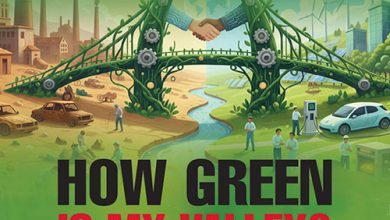PLUGGING MADE IN SRI LANKA
The government is encouraging local assembly of vehicles – Janaka Perera

Around four decades ago, business tycoon Upali Wijewardene pioneered the assembly of cars (the Upali Fiat) in Sri Lanka, some of which are still around. This emerging sector was decimated when relatively inexpensive Japanese cars flooded the market following economic liberalisation in the late 1970s.
When Wijewardene established his organisation – the Upali Group – it did not have direct connections with the parent companies and so a globally recognised vehicle manufacturer was not present here. Today, the motor industry is missing his pioneering venture and vision to develop vehicle assembly in Sri Lanka.
Currently, Micro Cars has an assembly unit for certain South Korean vehicles while India’s Mahindra & Mahindra operates a plant in Welipenna to manufacture some of its best-selling models locally, which are sent here in knockdown form.
However, apart from Micro’s eponymous car some years ago, no attempt has been made to produce a completely indigenous car in Sri Lanka.
The future of cars and other forms of transport will be electric. Experts predict that the days of the Internal-Combustion Engine (ICE) could be over by as early as 2035 since all carmakers are shifting to electric power. Several models of electric cars will swamp the global market next year and some will enter the local market.
In this context, we should recognise the efforts of a team of young Sri Lankans who have built the Vega, which is an electric car, from the ground up. Not simply any electric car but a supercar that can rival almost any vehicle of its ilk, whether electric or ICE, from established global carmakers such as Porsche, Ferrari or Lamborghini.
The Vega (‘speed’ in Sinhala) EVX made its world premiere at the Geneva Motor Show in 2020, marking a proud moment for our country and its enterprising youth. Unfortunately, the exhibition was later closed to the public due to COVID-19 fears. The Sri Lankan government has extended its support for this venture.
Vega is to use this as a foundation to venture into the production of more affordable electric cars, which are also easier to manufacture. This is indeed how Tesla started – with an electric roadster that cost more than US$ 200,000 (there is a new model that will compete with Vega); and today, Tesla has a Model 3 sedan that costs only US$ 35,000 (for the basic unit excluding options).
Much depends on marketing of course, and the Vega should be positioned not only to appeal to the super rich who have the cash to buy but also car lovers who may someday aspire to purchase a more affordable electric car or even a bike. And this marque should aspire to become a brand known to motor enthusiasts the world over.
Vega and other established carmakers in Sri Lanka must also realise that we need a network of superchargers – given the rising popularity of electric cars, which will be the only vehicles allowed registration after 2040.
One option is to partner with a company such as Tesla, which manufacturers superchargers at its own expense whenever it officially launches cars in a country. Another way ahead is to popularise solar-powered car chargers that will be completely carbon neutral.
According to Vega sources, it is working on technologies for its battery pack with tab liquid cooling, advance fusing and high energy density packing technologies. The brand hopes that its unique selling proposition will stand out with the cylindrical cell packs that it’s developing.
Unlike with some other EV supercars, this company has decided to produce all the electronics in the first go. This will stop people tapping into the thermal energy-powered national grid to charge their electric cars, which can negate any perceived benefit of using them.
The Ceylon Motor Traders Association (CMTA) has accepted the government’s decision to restrict vehicle imports in order to safeguard foreign exchange reserves and keep the rupee stable in the wake of COVID-19 since early 2020.
However, CMTA was disappointed to learn that a cabinet proposal to permit the assembly of vehicles with used parts was being considered, which – if ratified – would violate many laws and regulations for vehicle assembly.
The CMTA has vehemently opposed this proposal, which raises many concerns over safety standards, durability and reliability of vehicles assembled from used parts of questionable quality.
A policy framework is to get underway for gradually moving away from vehicle imports and simultaneously creating a solid ecosystem for the assembly of motor vehicles, as well as facilitating ‘original equipment manufacturer’ status for makers of local vehicular components.
The Ministry of Industry and Commerce has designed standard operational procedure to empower the vehicle assembly industry, having taken on board the views, experiences and inputs of local manufacturing companies that have already set up assembly lines in the country.





